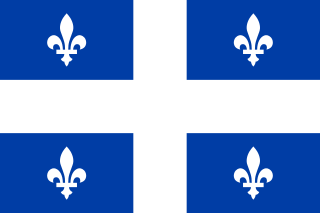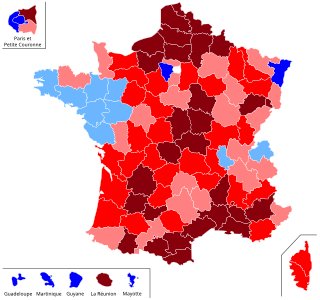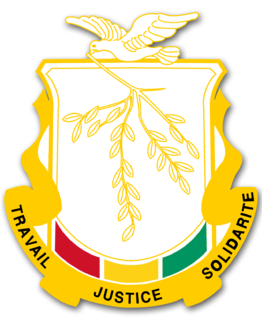Djibouti is a country in the Horn of Africa. It is bordered by Somalia to the southeast, Eritrea and the Red Sea to the north and northeast, Ethiopia to the west and south, and the Gulf of Aden to the east.

Politics of Djibouti takes place in a framework of a presidential representative democratic republic, whereby the executive power is exercised by the President and the Government. Legislative power is vested in both the Government and the National Assembly. The party system and legislature are dominated by the socialist People's Rally for Progress. In April 2010, a new constitutional amendment was approved. The President serves as both the head of state and head of government, and is directly elected for single six-year term. Government is headed by the President, who appoints the Prime Minister and the Council of Ministers on the proposal of the latter. There is also a 65-member chamber of deputies, where representatives are popularly elected for terms of five years. Administratively, the country is divided into five regions and one city, with eleven additional district subdivisions. Djibouti is also part of various international organisations, including the United Nations and Arab League.

"Djibouti" is the national anthem of the Republic of Djibouti.

The Quebec sovereignty movement is a political movement as well as an ideology of values, concepts and ideas that advocates independence for the Canadian province of Quebec.

The 1995 Quebec independence referendum was the second referendum to ask voters in the Canadian French-speaking province of Quebec whether Quebec should proclaim national sovereignty and become an independent country, with the condition precedent of offering a political and economic agreement to Canada.

The French Territory of the Afars and the Issas was the name given to present-day Djibouti between 1967 and 1977, while it was still an overseas territory of France. The area was formerly known as French Somaliland.

Greater Somalia comprises the regions in or near the Horn of Africa in which ethnic Somalis live and have historically inhabited. The territory historically encompassed British Somaliland, Italian Somaliland, French Somaliland, the Ogaden in the Ethiopian Empire, and the Northern Frontier District in the Colony and Protectorate of Kenya - at the present day, it encompasses Somalia, eastern Djibouti, the Somali region and Dire Dawa in Ethiopia, and the Lamu, Garissa, Wajir and Mandera Counties in Kenya.

Elections in the Comoros take place within the framework of a multi-party democracy and a presidential system. The President and the majority of the seats in the Assembly of the Union are directly elected.

The French referendum on the Treaty establishing a Constitution for Europe was held on 29 May 2005 to decide whether France should ratify the proposed Constitution of the European Union. The result was a victory for the "No" campaign, with 55% of voters rejecting the treaty on a turnout of 69%.

The Ogaden War was a Somali military offensive between July 1977 and March 1978 over the disputed Ethiopian region of Ogaden, which began with the Somali invasion of Ethiopia. The Soviet Union disapproved of the invasion and ceased its support of Somalia, instead starting to support Ethiopia; the United States, conversely, ceased its support of Ethiopia and started supporting Somalia. Ethiopia was saved from a major defeat and a permanent loss of territory through a massive airlift of military supplies, the arrival of 16,000 Cuban troops, 1,500 Soviet advisors and two brigades from South Yemen, also airlifted to reinforce Harar. The Ethiopians prevailed at Harar, Dire Dawa and Jijiga, and began to push the Somalis systematically out of the Ogaden. By March 1978, the Ethiopians had captured almost all of the Ogaden, prompting the defeated Somalis to give up their claim to the region. A third of the initial Somali National Army invasion force was killed, and half of the Somali Airforce destroyed; the war left Somalia with a disorganized and demoralized army and an angry population. All of these conditions led to a revolt in the army which eventually spiraled into a civil war and Somalia's current situation.

An independence referendum was held in Montenegro on 21 May 2006. It was approved by 55.5% of voters, narrowly passing the 55% threshold. By 23 May, preliminary referendum results were recognized by all five permanent members of the United Nations Security Council, suggesting widespread international recognition if Montenegro were to become formally independent. On 31 May, the referendum commission officially confirmed the results of the referendum, verifying that 55.5% of the population of Montenegrin voters had voted in favor of independence. Because voters met the controversial threshold requirement of 55% approval set by the European Union, the referendum was incorporated into a declaration of independence during a special parliamentary session on 31 May. The Assembly of the Republic of Montenegro made a formal Declaration of Independence on Saturday 3 June.

The Gibraltar Constitution Order 2006 was taken to a referendum in Gibraltar on 30 November 2006. A coalition of groups opposing the proposal held that a majority of 60% should be required to give effect to a new Constitution, quoting other instances, but the political parties held that the result should be decided by a simple majority in favour of the new constitution. The constitution was approved by 60% of the votes anyway.
Five referendums were held in Switzerland during 2005. The first two were held on 5 June on Switzerland joining the Schengen Area and whether registered partnerships for same-sex couples should be introduced. Both questions were approved. The third was held on 25 September on a federal resolution on extending the agreement on free movement of people to new members of the European Union, and was also approved. The final two were held on 27 November on a popular initiative "for food from an agriculture free of genetic modification" and on a labour law related to the opening times of shops in public transport hubs. Both were approved.

A referendum on Scottish independence from the United Kingdom took place on Thursday 18 September 2014. The referendum question was "Should Scotland be an independent country?", which voters answered with "Yes" or "No". The "No" side won, with 2,001,926 (55.3%) voting against independence and 1,617,989 (44.7%) voting in favour. The turnout of 84.6% was the highest recorded for an election or referendum in the United Kingdom since the introduction of universal suffrage.

A constitutional referendum was held in Kenya on 4 August 2010. Voters were asked whether they approved of a proposed new constitution, which had been passed by the National Assembly on 1 April 2010. The new constitution was seen as a vital step to avoid a repetition of the violent outbursts after the 2007 general elections.

A constitutional referendum was held in Guinea on 28 September 1958 as part of a wider referendum across the French Union on whether to adopt the new French Constitution; if accepted, colonies would become part of the new French Community; if rejected, the territory would be granted independence.

The Bermudan independence referendum of 1995 was a referendum held in Bermuda on 16 August 1995 over whether Bermuda should become an independent sovereign state or remain a British Dependent Territory. On a voter turnout of 58.8%, 73.6% voted against independence, and 25.7% voted in favour. Following the decisive referendum result, Sir John Swan, in favour of independence, resigned as Premier of Bermuda.
A referendum is a direct vote in which an entire electorate is asked to either accept or reject a particular proposal. This article summarises referendum laws and practice in various countries.
This page lists public opinion polls that have been conducted in relation to the issue of Scottish independence. A referendum on the subject was held on 18 September 2014.



















